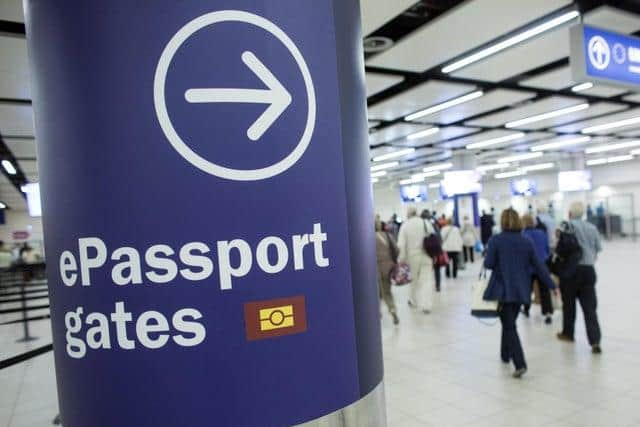England to stop quarantine for 'low risk' nations - but restrictions remain in Scotland
From 10 July, arrivals from dozens of countries will be able to enter England without having to isolate for two weeks, but restrictions will continue in Scotland, Wales and Northern Ireland for the time being.
A list will be published as part of a ‘traffic light’ system that will set out which countries are safest, and where there are reciprocal agreements that mean arrivals from the UK are also exempt from quarantine.
Advertisement
Hide AdAdvertisement
Hide AdThe Scottish Government is understood to be pushing for quarantine measures to continue until 15 July, when tourism and hospitality businesses are expected to be allowed to reopen north of the border.


But it risks Scottish tourism businesses missing out on the first wave of bookings from overseas visitors.
A war of words over the different stances on quarantine either side of the border erupted this week, with Nicola Sturgeon accusing the UK Government of making it impossible to agree to its plans because of a series of last minute changes.
Boris Johnson said the First Minister was being “highly irresponsible” by suggesting that quarantine could be imposed on arrivals in Scotland from England, if there continues to be a higher rate of infection south of the border.
The UK Government was expected to announce a series of reciprocal ‘air bridges’ with a small number of countries, but the refusal of governments including Greece to reopen for arrivals from the UK due to the prevalence of the virus made such agreements difficult.
Greece and France are expected to be placed on the ‘amber’ list because of the uncertainty around the status of travellers from the UK, although a reciprocal deal with France could come within days.
The United States and Brazil, where the virus is spreading rapidly, will be listed as ‘red’, with Foreign Office advice against all but essential travel continuing.
Much of Western Europe, British overseas territories, and countries including Turkey, Thailand, Australia and New Zealand are expected to be listed as ‘green’, with the Foreign Office changing its guidance to allow leisure visits with proper precautions.
Advertisement
Hide AdAdvertisement
Hide AdUK Transport Secretary Grant Shapps said: “Today marks the next step in carefully reopening our great nation.
“Whether you are a holidaymaker ready to travel abroad or a business eager to open your doors again, this is good news for British people and great news for British businesses.
“The entire nation has worked tirelessly to get to this stage, therefore safety must remain our watchword and we will not hesitate to move quickly to protect ourselves if infection rates rise in countries we are reconnecting with.”
A message from the Editor:
Thank you for reading this story on our website. While I have your attention, I also have an important request to make of you.
The dramatic events of 2020 are having a major impact on many of our advertisers - and consequently the revenue we receive. We are now more reliant than ever on you taking out a digital subscription to support our journalism.
Subscribe to scotsman.com and enjoy unlimited access to Scottish news and information online and on our app. Visit https://www.scotsman.com/subscriptions now to sign up.
By supporting us, we are able to support you in providing trusted, fact-checked content for this website.
Joy Yates
Editorial Director
Comments
Want to join the conversation? Please or to comment on this article.